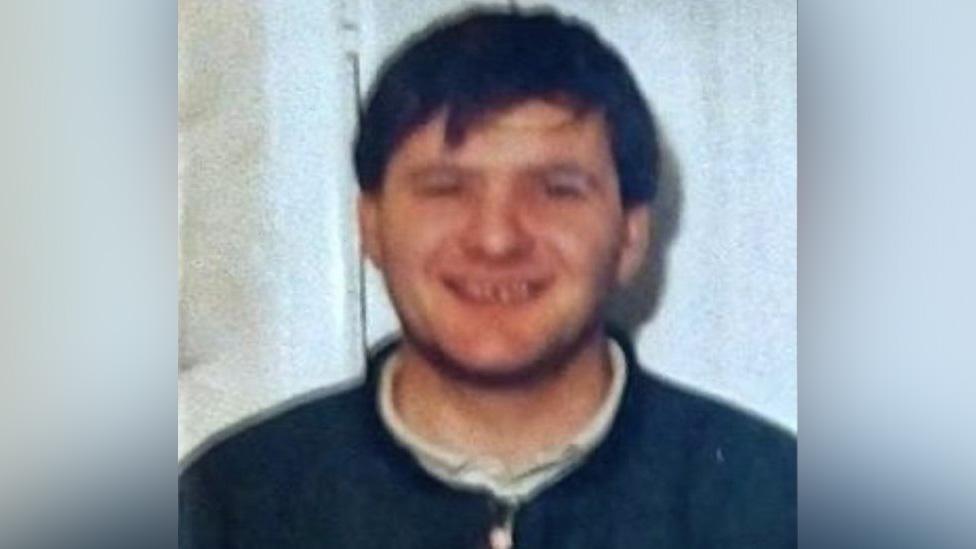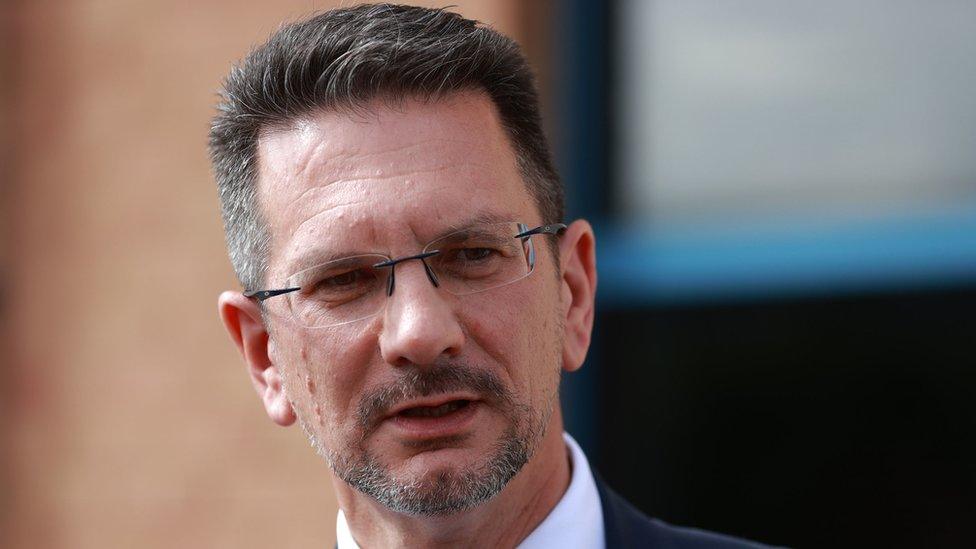Belfast: High Court rules on Liam Paul Thompson inquest disclosure
- Published

Liam Paul Thompson was shot dead in west Belfast in 1994
The PSNI and UK government have lost a High Court battle to stop sensitive information from being disclosed at a loyalist paramilitary murder inquest.
Liam Paul Thompson, 25, was shot dead in a taxi by the Ulster Freedom Fighters (UFF) in west Belfast in 1994.
A coroner decided a limited summary of some material in a police file could be provided to Mr Thompson's next of kin.
But lawyers for the NI secretary and the chief constable said it breached a Neither Confirm Nor Deny (NCND) policy.
They added it could be done in a way which could go against national security interests.
However, addressing the court in Belfast, Mr Justice Humphreys rejected claims that the coroner's decision was unlawful and irrational.
He said: "She took into account all material considerations, including the need to have proper regard to assertions of risks of damage to national security contained in ministerial certificates and the limited circumstances in which a judge or coroner may depart from such an assertion."
PSNI Chief Constable Jon Boutcher said the PSNI accepted the judgment and welcomed the clarity it provided.
Disclosure 'serious harm' to public interest
Mr Thompson was shot at Springfield Park in April 1994 while being given a lift in a taxi.
Amid allegations that the Royal Ulster Constabulary (RUC), precursor of the Police Service of Northern Ireland (PSNI), was aware of a credible threat against the cab firm, members of the local community suspect police were also complicit by failing to provide a warning.
At an inquest into Mr Thompson's killing, the PSNI and Ministry of Defence (MoD) requested public interest immunity (PII) for documents which would be disclosed to interested parties in proceedings.
These applications were based on certificates issued by Northern Ireland Office minister Steve Baker.
He said any disclosure would cause a real risk of serious harm to the public interest.

Minister Steve Baker cited the continuing threat from terrorism while issuing the certificates
The coroner granted PII for nearly all of the material but said some information contained in one of seven police folders was relevant and should be provided.
She determined the risk to national security was not at the level asserted but also ruled that names, dates and intelligence were to be redacted to mitigate against any real risk of serious harm.
However, in a challenge held partly in private, both the PSNI and the Northern Ireland Secretary said the coroner incorrectly applied the legal test, and also disputed her reasons for allowing some of the material.
Inconsistency claims 'untenable'
On Monday Mr Justice Humphreys denied this claim, adding that the coroner's articulation was "unimpeachable".
"I am satisfied that the coroner correctly directed herself on the law and was fully sighted on the authorities in relation to PII and the NCND policy," he said.
"There is no basis to assert that there was any misdirection as to the law."
The judge also described inconsistency claims as untenable, adding that it is "perfectly proper" for a PII to be upheld in part.
He dismissed the applications.
Gemma McKeown, the solicitor for Mr Thompson's relatives, welcomed the judgement, describing it as a "significant ruling".
"It upholds the vital and independent role of the coroner in carrying out the balancing exercise of the competing public interests of national security and open justice," she said.
She said Mr Thompson's family now looked forward to "getting this delayed inquest back on track so that it can conclude before 1 May".
The Legacy and Reconciliation Act states inquests that have not concluded by that date will close.
PSNI Chief Constable Jon Boutcher said the PSNI was "committed to continuing to work with the Coroner Service on this inquest."
"As this is the subject of ongoing inquest proceedings, it would be inappropriate for the Police Service to comment further at this time," he added.